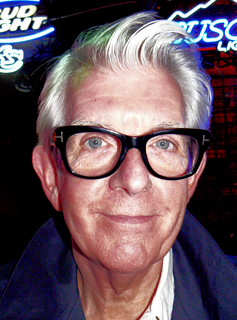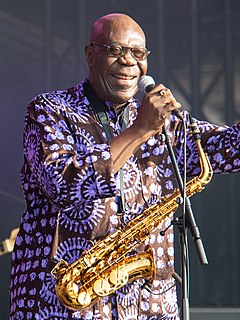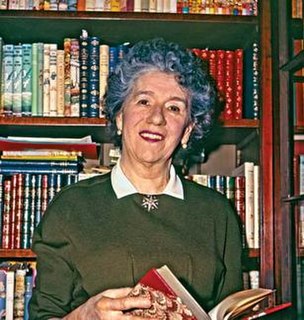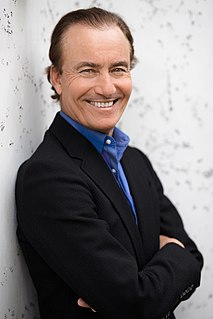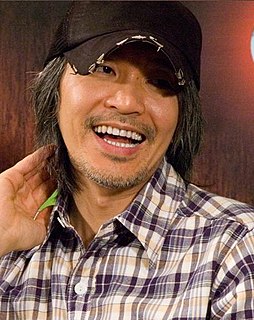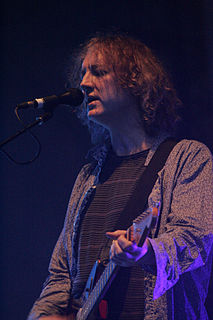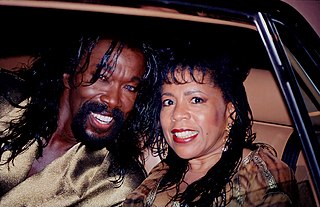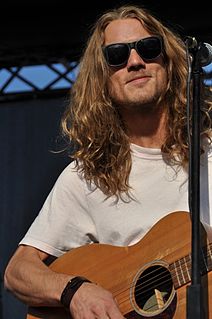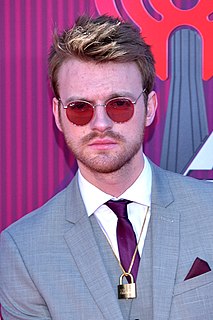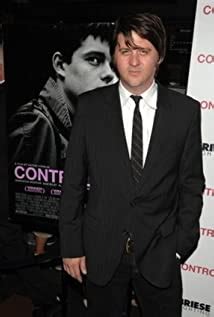A Quote by William Eggleston
Generally, that's what happens-a fundamental rotting of the idea. They woke up with the wrong idea. It's just like music: If you don't have an innate love or calling for it, then no matter how much you study or how well you can play by looking at the score, it doesn't mean that you're going to make really good music.
Related Quotes
And religious music and the sort of symbolism of it and everything. But I had this idea. Actually, I sort of dreamt it. I woke up - just before waking up one morning, I sort of dreamt this song or the idea of it and the first little bit of it. And I jumped out of bed and I thought, well, you're still asleep. You're going to forget this in a minute - you know, like you do when you've had a dream.
You know that one don't play music just for the hours to pass. But you play music because you are in love with music and luckily if it happens that people like what I'm proposing, then I'm happy. Although music is business, yet you don't start thinking about money from the initial stages when you are in music. First propose to the people what they want and if they like it, then the money comes later.
I wonder where you got that idea from? I mean, the idea that it's feeble to change your mind once it's made up. That's a wrong idea, you know. Make up your mind about things, by all means - but if something happens to show that you are wrong, then it is feeble not to change your mind, Elizabeth. Only the strongest people have the pluck to change their minds, and say so, if they see they have been wrong in their ideas.
I thought, 'Okay, what's going to be my edge, and how am I going to define what I'm doing differently?' Once I had that key idea of the software developer as an artist, once I had that idea, a whole bunch of other ideas flowed from that, because I realized that I need to go study the music industry, I need to study the book publishing and Hollywood and figure out how they do things, why they do them that way, and then I need to borrow, and rearrange, the things that they're doing to fit my industry so that I can invent and create this new industry.
It's tough to make music and make it your own, and not have somebody call it something you don't agree with but can't control. Sometimes the press doesn't realize how much power they have and how they can shape somebody's life. I think there's a lot of people just trying to make music and get their art out there, and their heads get f**ked by the press calling them this or calling them that.
I don't feel bound by the ebbs and flows of musical trends, or what's happening with new music in general. I always had a fascination with that sound. It's a mixture of the idea that something could be going wrong along with the idea of bending constrained, Westernized music out of tune. But because I wasn't copying an idea, and it just came from somewhere inside me, it felt like a birth of something that most people didn't understand at the time.
Both my grandmothers had upright pianos, and I just knew how to play since I was a child. Nobody taught me. I sounded like a grown-up, and then I learned how to read music. I played so well by ear I could fool the teacher to believe I could play the notes. She'd make the mistake of playing the song once, and I could play it.
I love music so much that I have to try to make my own music. And not copy music. If I hear a song that I love - how is the groove and how is the beat and what is the feeling of this? - I can make it my own. So then I try, and I watch it become something totally different. But that's the way I have to do it.
My brain does like the idea of hosting a late-night show. My brain does like the idea of maybe having a show about me. So, I often pitch ideas and work on scripts and do that just because I may not be right about how I feel, so why not just do this, and if it happens and I got my own show, well maybe I would really end up falling in love with it.
"I'm at your house?" Kody asked."You don't have to sound so offended. I do have people clean it, you know?""Sorry." She sighed wearily. "You have no idea how confusing it is to wake up in a strange place with no idea how you got there."Caleb laughed. "Sure I do. Happens to me frequently."She rolled her eyes at his frightening lifestyle. "Yes, but I woke up in this bed alone."
I think the Control has really opened up the music to a whole new audience. I've met kids recently, kids of people I know who are 14 and 17 who love Joy Division and have been a fan before the movie, which is really weird. How does that happen? I have no idea. But, the music that's out there today is heavily influenced by these bands from the 70s and 80s like Joy Division. I want them to take away a little bit of what Ian Curtis was and, at such a young age, he had so much going on.

